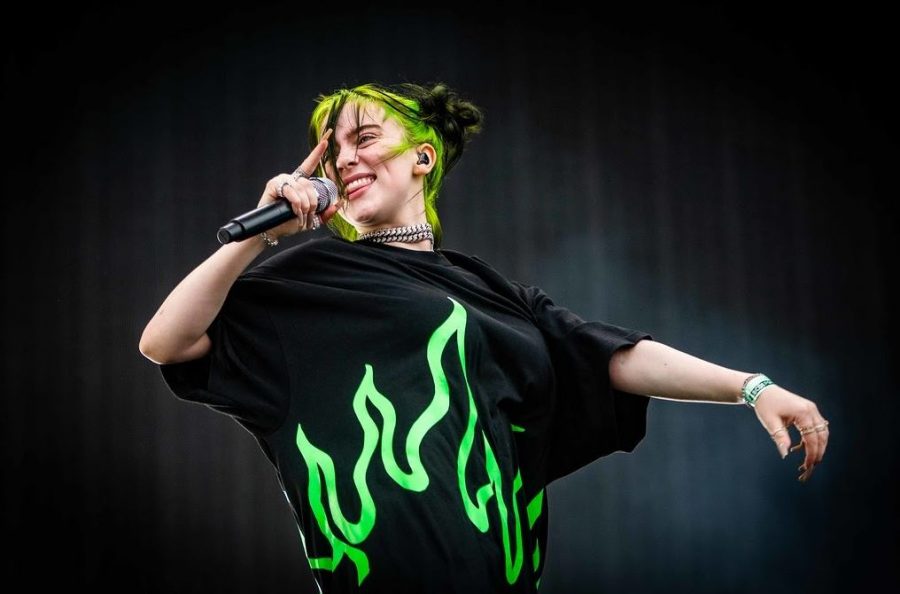The Toxic Masculinity and Disingenuous Themes in Rap are Becoming a Problem
“Just because the story isn’t real doesn’t mean it can’t be important. There’s a difference between lying in a song and writing a story. There are tons of songs where people are just lying. There’s a lot of that in rap right now.”
That’s an excerpt from Billie Eilish’s interview with Vogue Magazine on February 3rd. In the interview, Eilish accuses mainstream rappers of lying in their music, a quality that has been rampant in the genre since its inception, but never more widespread than it is today. From guns to gangs to women, the material and the objectified are talked about endlessly in this genre. It’s unavoidable, but it’s always been. With that in mind, at what cost should we let these themes further become the defacto and genre-defining traits of rap in its entirety?
Eilish generated a pretty monstrous amount of backlash for her comments. For days, Twitter has been on her coattails. A lot of people have pointed to her so-called “obvious hip-hop influence” and gestured for her to “stay in her lane.” Some even tried to suggest that she was racist, being a white woman criticizing a predominantly black genre, and specifically one that she has a lot of ties to.
But is it really that deep?
Here’s the thing about Billie Eilish: her musical roots in hip-hop, while present, aren’t exactly what I would call prominent. The vast, and I mean vast majority of her musical catalogue derives more influence from Alt-Pop, Acoustic, Grunge, and even genres like Vaporwave in a few isolated instances. Just because a single or two incorporated some trap hi-hats, is it really fair to say that her entire career has benefited drastically from it? Provocateurs of this narrative will also ignore the fact that modern trap production archetypes originated from EDM and Dubstep, and not hip-hop itself, but that’s another plate of cookies for a different glass of milk.
But forget Billie, how does this extend past just her opinion? How do these things affect an entire genre, an entire community, and an entire industry?
Lying has existed in rap forever. Literally, since its inception, it’s been a staple of rap’s lyrical content. That isn’t remotely the problem here, and I don’t think it’s the problem Eilish alluded to either. It’s not about the lyrical context of it all, nor is it about the legitimacy of the ones who write these lyrics. It’s really about the social impact it’s having on the youth. When the single most popular genre’s dominant themes revolve around drugs, gangs and territorial violence, and especially objectifying women, it’s bound to have influence on a huge percent of it’s listener base. It’s not to say that lying in rap is bad, but that it’s bad in overwhelming abundance because when there’s nothing else to say, there’s nothing else to teach the impressionable kids who grow up on the stuff. These kids grow up, reenact what they hear on the radio, wash rinse repeat. This is why every time Kendrick comes out with an album, its lyrical and thematic content is praised because, not only is he breaking the mold every time, but he’s taking these things and bringing substance to them.
Also, there are so many who will tout the growing popularity of these motifs as normal because it’s always been normal to have them. However, if it’s really okay to be lying about that stuff more and more, then why wasn’t it okay when Slim Jesus did it? Why wasn’t it okay when Lil Xan did it? Suspend any musical bias from your mind for a minute because you cannot deny that the double standard is prevalent, and quite frightening.
There are plenty of others who bring the same substance Kendrick does to rap, but they don’t punch holes into the mainstream nearly as much and don’t have nearly as much lasting power at the top of the charts and on radio stations, so they’re heard less often and for less time.
That’s kind of becoming the cost of creativity in hip-hop. The more prevailing these topics become in hip-hop, and by extension the more popular hip-hop gets, the more dangerous this level of decadence and licentiousness becomes.
Where do we draw the line?

Braeden Meadows is a 2021 Graduate of Liberty High School and former Managing Editor for The Patriot Press. They are now a part-time freelance journalist,...







Emily • Mar 6, 2020 at 9:39 am
Great article, you gave a really good argument.
Tara • Feb 28, 2020 at 1:47 pm
great article! You really dove in and talked about the situation.